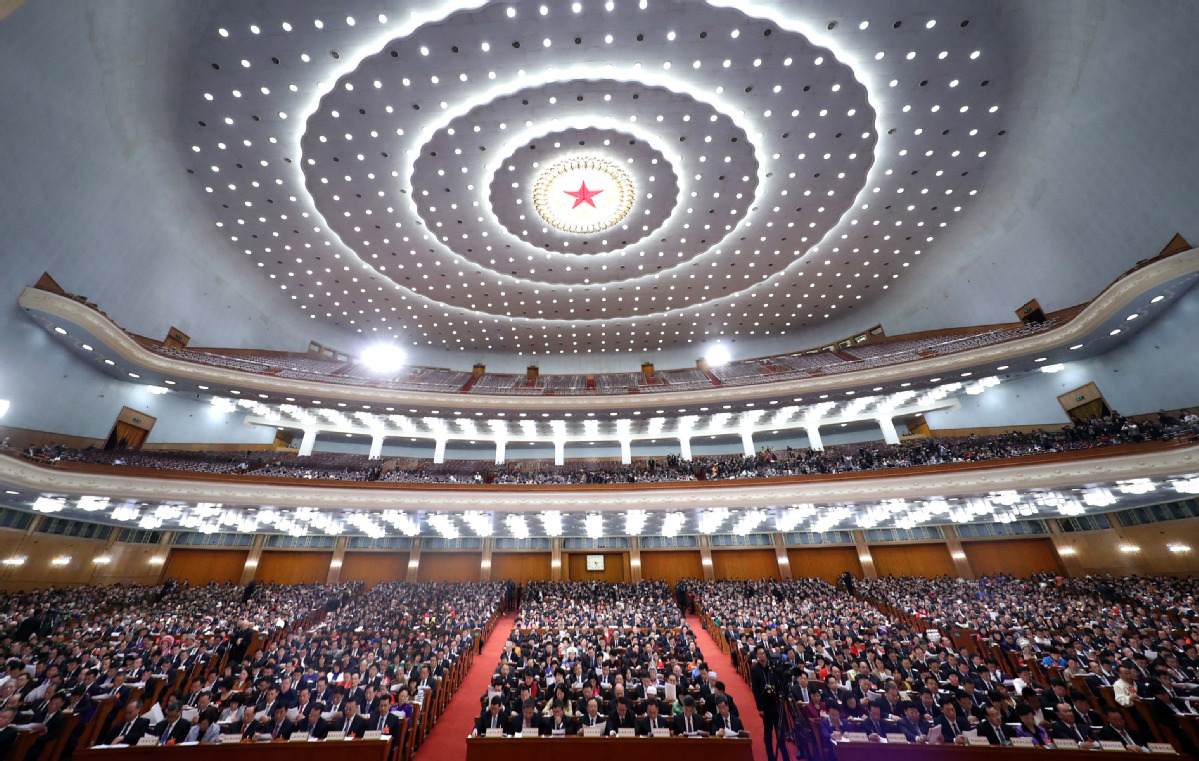Action to cut bureaucracy widely hailed
 0 Comment(s)
0 Comment(s) Print
Print E-mail China Daily, March 14, 2019
E-mail China Daily, March 14, 2019
Lawmakers and political advisers attending the annual two sessions have hailed the Party's firm resolve to curb the practices of formality for its own sake and bureaucratism, typical forms of undesirable work styles that influence governance.

They spoke after the General Office of the Communist Party of China Central Committee released a circular requiring that more efforts be made to solve the problems arising from too much formality to reduce the burdens on communitylevel officials.
Zhang Shuhua, a member of 13th National Committee of the Chinese People's Political Consultative Conference, said the practice of formality for formality's sake and bureaucratism are obstacles to the nation's comprehensive deepening of reforms.
The circular was issued as President Xi Jinping, who is general secretary of the CPC Central Committee, prompted Party organizations to improve governance and address the immediate concerns of the community-level officials over the practice of excessive formality that is often seen in their everyday work.
Speaking at the third plenary session of the Central Commission for Discipline Inspection in January, Xi asked Party committees at various levels to keep close watch on the new forms of formality and bureaucratism, and called for effective measures to curb them.
In a recent written instruction, Xi highlighted the importance of solving problems resulting from overindulgence in formality that upset community-level officials, according to the circular, which was made public on Monday.
Listing a series of measures, the circular, aiming to inspire officials to work in a down-to-earth manner and demonstrate a keen sense of responsibility, required that the number or length of official documents and meetings should be drastically cut down by authorities at various levels.
Huang Huachun, a deputy to the 13th National People's Congress and also a senior teacher at the Chongzuo High School in the Guangxi Zhuang autonomous region, said the circular will liberate many people like her working at the primary level from myriad meetings, reports and documents, and allow them to focus more of their attention on practical work.
Huang was echoed by Hu Ye, director of the Jiangsu Institute of Quality and Standardization. Many community-level government officials are so burdened dealing with various kinds of reports or documents that they don't have sufficient time to do practical work, said Hu, who is also an NPC deputy.
"As a primary-level worker, I'm a staunch supporter of measures to combat useless formality and streamline the workflow to improve efficiency," he said.
The circular also listed practical measures to address excessive efforts to supervise and evaluate primary-level authorities and officials' work, as well as to improve the system of accountability and incentives.
Liu Xiaozhuang, a CPPCC National Committee member, said meeting minutes, photos or signatures are often used by some officials to track their work performance record.
In some cases, some Party officials give assignments or pass on decisions or policies from authorities at a higher level by holding meetings or reading documents instead of doing practical work, while some use fake reports or shout slogans to report their work performance, Liu said.
Such misconduct must be banned and rectified because they harm the work of the Party and the government, he said, adding that loyalty to the Party and the people requires full implementation of the policies and decisions of the CPC Central Committee as well as a down-to-earth working style.
Lin Xinglu, an NPC deputy, said primary-level officials who work at the forefront of the critical battle of poverty reduction and those working in remote areas or who experience hardship as they face heavy tasks and pressure, need relief.






Go to Forum >>0 Comment(s)